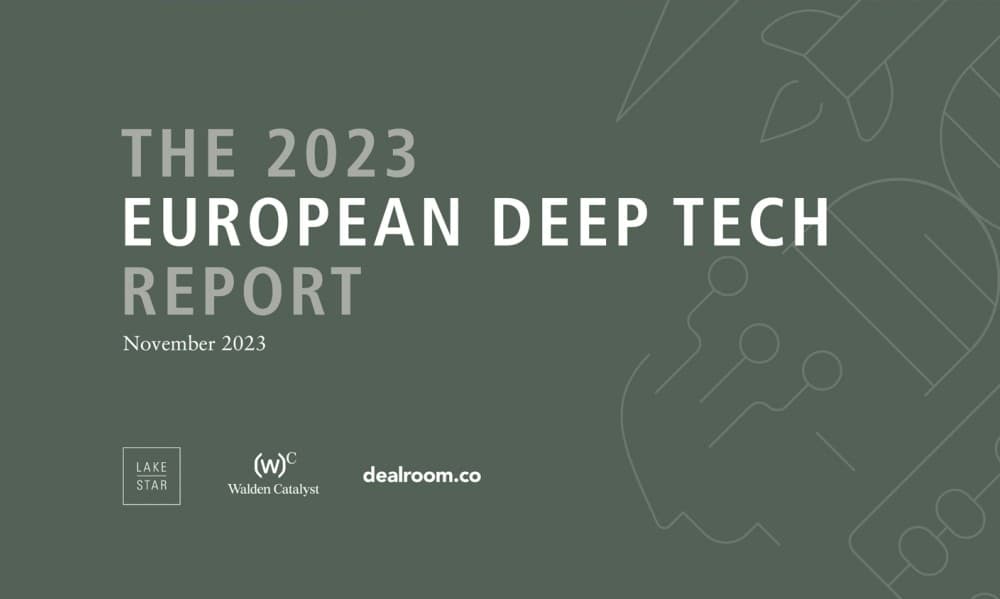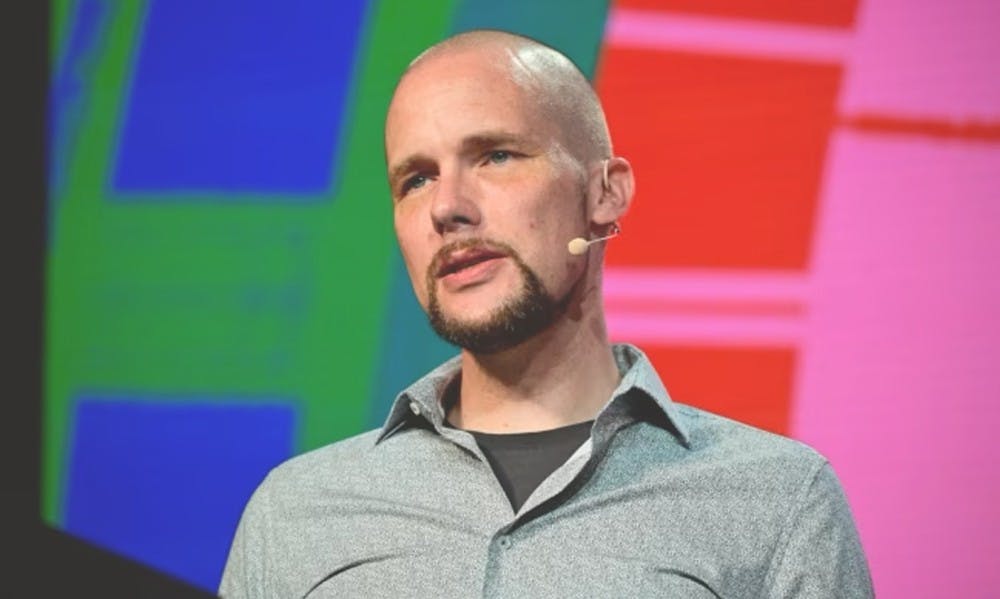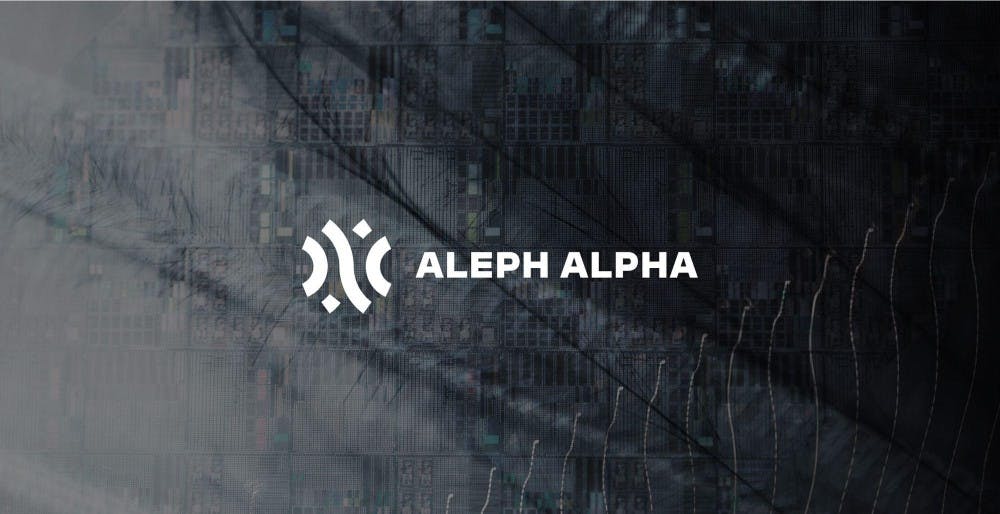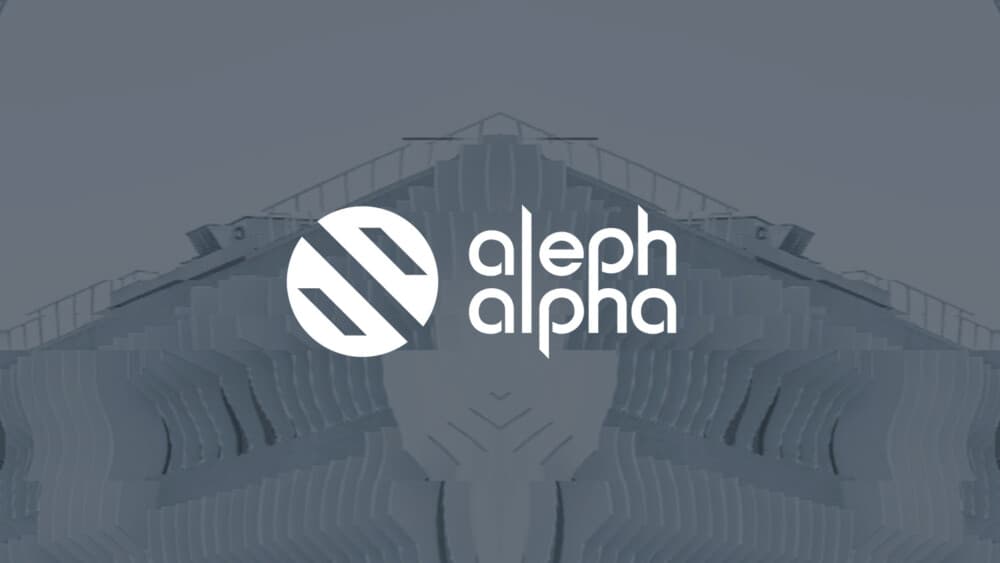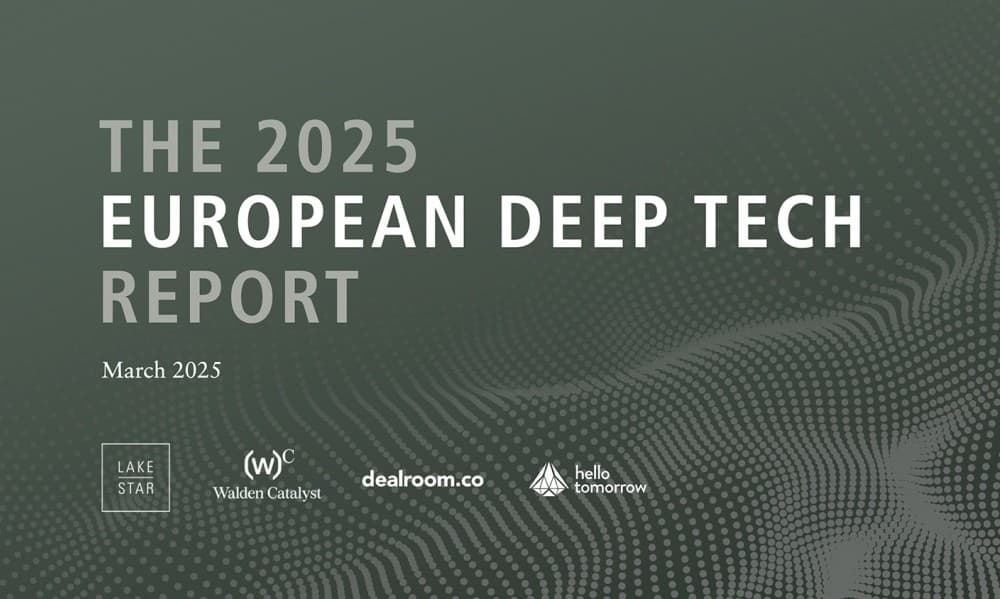Founders' Stories|Insights|
Prepare for the next technological revolution
Jonas Andrulis, Founder and CEO of Aleph Alpha, the artificial intelligence R&D company, believes that the world is about to change and that Europe needs to position itself to influence the direction.
Jonas Andrulis, Founder & CEO, Aleph Alpha
‘AI will absolutely change the world,’ he says. ‘By about 2030 this technology has the potential to do 50 percent of what we call work and we need the competence and capability to shape that future. If we don’t, we will be the users of this technology and others will decide for us how this new generation of AI is shaped.’
Andrulis is enthused about the possibilities ahead, and how Europe can benefit from it. ‘The potential for value generation is giant and we need control of that value to tackle the social and cultural effects that this technology will have,’ he says.
The new generation of AI that he is so excited about is called AGI – artificial general intelligence, or a ‘superhuman’ intelligence. He was introduced to the concept while working on AI R&D at Apple’s special projects division, or, as he likes to refer to it, where they do the ‘the James Bond Q stuff’. ‘The systems that I had been building at my last company were the supervised systems where you defined a certain goal and then trained the model to do this one thing – recognising pedestrians, for example. And it couldn’t do anything else – it would just simplify the complexity of our world to this arbitrarily defined task of whether something is a pedestrian or not. It was basically just a functional approximater between input and output. But this is not how humans work.’
When he was at Apple, OpenAI published GPT-2, a language model that, which while powerful, still did not plug certain gaps in AI, like logical reasoning, for instance. ‘The majority opinion then of Natural Language Processing (NLP) researchers was that you can build these models and throw a lot of data at them but the AI systems will never figure out logic by themselves’ says Andrulis.
‘I was pretty convinced of that as well. And then, just 12 months later, GPT-3 was released by OpenAI and did all the things that we thought to be impossible. It does logical reasoning and I was absolutely blown away.’
Andrulis says he was not the only one to feel the seismic shift. ‘Some really renowned great experts had all their predictions turned upside down. That’s what caused me to stop and think about what was actually going on and whether it was worth digging into.’
‘Some really renowned great experts had all their predictions turned upside down.’
Andrulis says he was not the only one to feel the seismic shift. ‘Some really renowned great experts had all their predictions turned upside down. That’s what caused me to stop and think about what was actually going on and whether it was worth digging into.’
The more he looked into the technology, the more convinced he became of its world-changing potential, but then he hit a dead-end. ‘I tried to find out what European companies were on this. And that search came up empty. So I decided to start a company that could do this.’ Aleph Alpha is, Andrulis says, is on the forefront European AI R&D. ‘We have done something that a lot of people thought impossible: we have established AI R&D on an entrepreneurial basis in Europe,’ he says. The company does not focus on building a single solution product. Instead, ‘We want to build foundational technology that everyone can use.’ This requires an approach that is not just based on technology. ‘Not only do we have to build the technology, we have to change how humans and machines interact with it. Now with new technical possibilities we have to figure out how to design the human machine collaboration of the future.’
‘We have to figure out how to design the human machine collaboration of the future.’
This holistic approach is also evident in how Andrulis has structured his Aleph Alpha team. ‘We have three archetypes of team members,’ he says.
‘The first is the Researcher, the very theoretical, very analytical people. Then we have the Software Engineer. From the very beginning, I focused on hiring software engineers to build a robust production environment. There is no point in only hiring AI people for an AI company if the software is of bad quality. The third archetype is what I call Delivery – people who can help this technology make a difference, and empower others to use it. They work with partners, they work with customers, they build reference projects or lighthouse installations. Everyone in the company is some combination of these three archetypes.’
The Heidelberg-based company now employs 45 people and Andrulis describes it as ‘a project-driven organisation’. ‘Everyone is driven by projects and those could be internal research projects or external projects. We recently built our own data centre that is one of the biggest commercial clusters out there, because for all those experiments that we’re running, not only do you need insanely talented researchers, but you also need China-sized resources. The compute costs you need for just simple experiments is baffling.’
Andrulis’ reference to China is apposite. He sees the world engaged in an AI ‘arms race’ because of the extremely high earning potential. China woke up to this potential when the AlphaGo computer program beat the best human Go player, something that was never expected to happen. ‘AlphaGo not only beat him, but it actually demolished him and by doing so it fundamentally changed how humans view AI and the game of Go. Based on that, China started an AI development plan that allocated USD150 billion to it becoming the world’s leader in AI. AI is not an industry, it’s not a product: it is a general platform technology that will impact everything we’re doing.’
Because this technology is so impactful, Andrulis recognises the enormous responsibility to make it available in Europe for governments to use on critical applications. ‘We are working a lot with government agencies in Germany and on high security and government use cases. For those government projects short-term revenue is not a top priority. We are being paid – but that’s not what we care about. We care about proving that our technology can be something unique and can bring transformative use cases.’
The company is active in the commercial market too. ‘We basically go to the market with a relatively standard API and some examples of some open source repositories to make it useful. People then register to use our technology and our API and that scales via marketing and API business development,’ says Andrulis. He adds: ‘We’re building the computer capacity we need. Before, there was no commercial cluster in Germany that had this skill or the capacity to train the models that we need, so we built the first one. And we will continue to do so and create the software and hardware infrastructure on which this new industrial revolution can be built.’
Andrulis’ ambition is to list Aleph Alpha on the stock market and for it to become Europe’s most valuable company. ‘I’ve been mostly working within Germany but I believe that if this is going to succeed, it needs to be a European thing. So we need to grow this company into a truly European mission.’ That means working with other European governments and opening offices across the continent.
It was this idea of a European mission that attracted Andrulis to Lakestar. ‘Of course, we want a partner that can help us scale up down the line, with increasing sizes of funding rounds, but Lakestar’s strategic perspective on the geopolitical side – its European perspective – is something that I really value a lot.
‘AI is not an industry, it’s not a product: it is a general platform technology that will impact everything we’re doing.’
‘There are phenomenal people all over Europe but we need to find a way for people to meet and collaborate because we don’t want to be a virtual organisation. I don’t think that works in a company that has a heavy research focus.’ Instead, Andrulis envisages a series of hubs with small research teams in every main European city. Aleph Alpha is already attracting candidates from companies such as Google Brain and Microsoft Research, ‘so we’ve got the best of the best taking notice of us’.
All this research makes the technological revolution even more inevitable, and along with it transformations in society. ‘I don’t see my role in deciding for society how we want to structure ourselves,’ he says. ‘My role is to make sure that we have the technical brilliance that’s necessary to build the systems. We want to give all the stakeholders the necessary information and once we come to a decision on a democratic basis, then my team will execute this with excellence.
‘Certainly there will be challenging changes, but if we don’t have this technology, if there is no European company that knows how to build these systems, then we can’t act. ‘This is a political and philosophical question, not a technical one. But if we don’t have the technical competence, then all the philosophy will be for naught.’
Aleph Alpha is the leading startup in Europe shaping and developing the next generation of generalisable artificial intelligence models and its Founder is conscious of a responsibility to make the research available to the continent’s governments.


